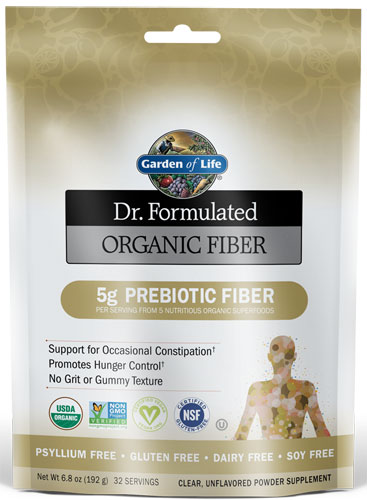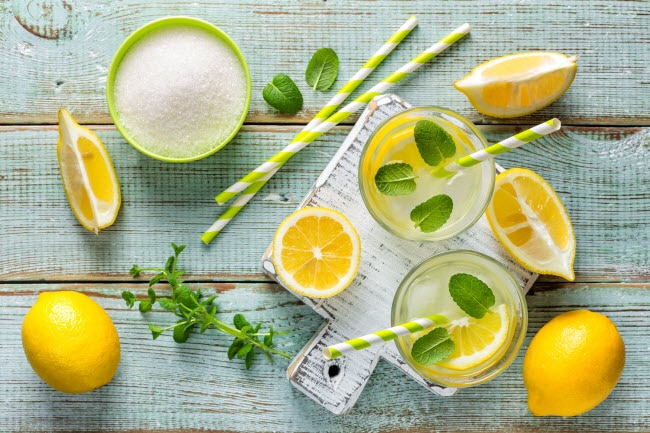The pain, the bloating, the perseverating, the frustration—we all know the symptoms of constipation, a digestive condition that affects 1 in 5 people and leads to 6 million doctor visits per year. Classically defined as having three or less bowel movements per week, passing dry, hard stools, and feeling “blocked,” it’s one of the most common intestinal issues around.
But did you know that natural options abound for releasing those brakes on your bowels? While the root of your constipation should be explored by your physician, here are 7 ways to find relief fast—without once having to pick up a laxative.
1. Crank up your fiber intake
There are two kinds of fiber: soluble and insoluble. Each can help you in a different way, and many fruits, vegetables grains, and beans are excellent sources of both types—meaning, both should be included in your daily diet.
But when constipation strikes, reach for insoluble fiber in particular. Foods high in insoluble fiber, such as wheat bran, add heft to your stool, thereby encouraging it to pass through your intestines at a faster rate. (As a whole, fiber also naturally supports regularity.) Happen to be gluten-free? Pears, spinach, corn, lentils and lima, pinto, kidney and garbanzo beans are rich in insoluble fiber as well. And refrain from rolling your eyes at the seemingly-antiquated advice of eating a few prunes for constipation: This timeless and terrific fruit contains an insoluble fiber called cellulose that not only increases the bulk of your stool but also boosts stool weight, thus leading to a gentler time doing #2.
2. Guzzle down
You may be well-aware that increasing your water consumption can encourage a host of health benefits, from bolstered energy and a lower BMI to more radiant skin.
But proper hydration is also key to the fitness of your gut. The longer it takes your body to have a bowel movement, the more water your colon absorbs from your stool. Translation? Dehydration could lead to dry, hard stools that are difficult to pass—and deliver the abdominal pain and puffy stomach that often arrive with it. (Bonus tip: Squeeze in some lemon—citric acid is famous for its ability to relieve constipation.) What’s more, staying hydrated can curb cravings for things like French fries and cookies—foods that are not only deleterious to your waistline but also to your waist. Which brings us to our next point:
3. Steer clear of alcohol and processed foods
Fruits, vegetables, beans and seeds while constipated? Check. Chips, cookies, booze, white bread, and ice cream? Run fast.
Processed foods such as these are often high in fat and low in fiber, both of which slow digestion and may result in constipation, while alcohol is notorious for its dehydrating effects. Can’t stand the idea of not having a plate of pasta and a glass of wine for dinner? Toss in veggies and add a salad on the side (the fiber will encourage gut balance) and trade in your vino for a mug of dandelion tea: As Medical News Today reports, dandelion “can stimulate the liver to produce bile, which can indirectly help with constipation.”
4. …but lunge for the kefir
This fermented milk beverage—widely seen on the shelves of the trendiest health food markets—originated in the Caucus Mountains of Asia, where it was christened with the name “pleasant taste.” While that may be arguable, what holds true is kefir’s impact on gut health and the potential it has for alleviating constipation. This is because kefir—a probiotic food—contains as many as 30 strains of “good” bacteria that help fight digestive issues, including constipation, by boosting bowel movements and softening stools.
5. Decompress
Stress and bowel habits are intricately connected—the bowel, after all, isn’t called your “little brain” for nothing. (As Dr. Kyle Staller, a gastroenterologist at Massachusetts General says, “Your gastrointestinal tract has many nerves and is a nervous system organ much like the brain. The brain can impact what’s going on in the gastrointestinal tract, and vice versa.”) Being able to go to the bathroom with ease—or even relative ease—becomes challenging when you’re physically clenched and/or tight from stress, or don’t allow yourself the time and space to sit on the proverbial throne.
What’s more, stress creates gut spasms that can block the passage of your stools and exacerbate constipation. Your long-term solution ought to be finding ways to slow down, whether that means taking on fewer responsibilities at work or delegating more tasks at home. In the short-term, however, consider luxuriating in a lavender-infused bubble bath. The warm water may soothe your discomfort, while lavender can enhance relaxation and promote digestion.
6. Sweeten up
…the right way with a tablespoon of blackstrap molasses. With a low sugar content but a dense amount of essential vitamins and minerals—including iron, selenium, and Vitamin B6—this superior product may offer constipation relief, thanks in part to its high levels of magnesium, which works to soften stools and calm muscles.
7. Get moving
As Harvard Health reports, physical inactivity is one of the most common causes of constipation. “People who exercise regularly generally don’t develop constipation,” the journal asserts. “Basically, the colon responds to activity. Good muscle tone in general is important for regular bowel movements.” You may be asking, why? The abdominal wall muscles and the diaphragm play a critical role in “the process of defecation,” they say, and “if these are weak, they’re not going to be able to do the job as well.”
Regular exercise also organically inspires smarter lifestyle choices, from sleep hygiene to clean eating and drinking adequate amounts of that aforementioned, all-important H20. In the immediate, though, try a seated twist. This basic, anyone-can-do-it yoga pose can help stimulate your digestive tract and may even prompt detoxification. Namaste, indeed.




